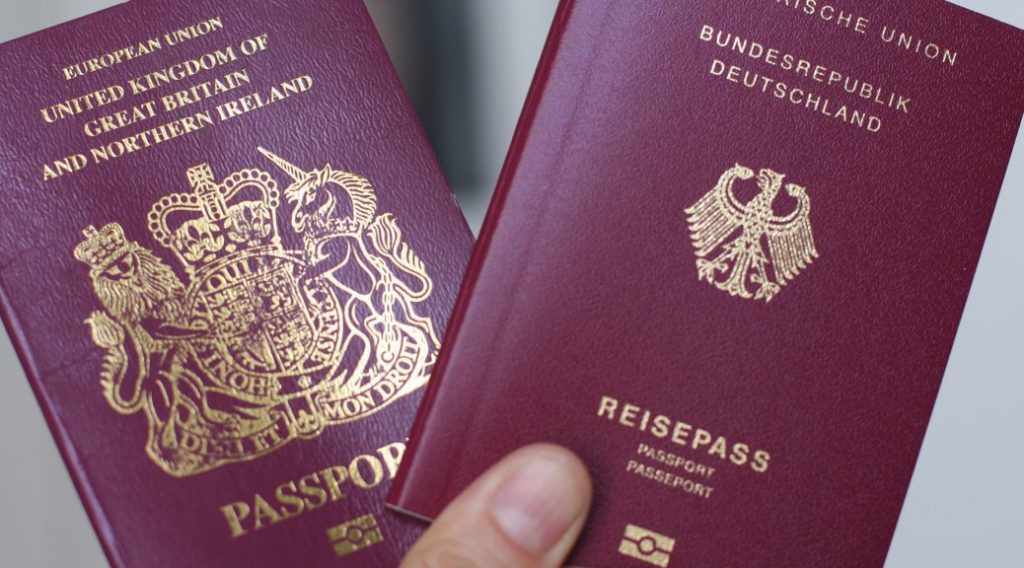
Bundestag passed citizenship law. Life in Germany. The Bundestag approved a proposed reform of the German citizenship law, marking a significant breakthrough. This revised legislation enables individuals to qualify for naturalization after residing in Germany for a mere five years. In certain instances, even after three years. These key changes define the essence of the new German citizenship law. The updated regulations are set to take effect three months after their official announcement. Here’s what you need to know:
German citizenship after 5 years – the Bundestag approved a new law
The Bundestag has approved the government coalition’s proposed reforms to the Citizenship Act. Reem Alabali-Radovan (SPD), the federal government’s integration commissioner, played an active role in advocating for the new regulations in the Bundestag. Emphasizing Germany’s historical status as a country of immigration, Alabali-Radovan stated that the current reform is geared towards transforming the Federal Republic into a “future-ready immigration country.” The primary objectives include facilitating the citizenship application process for foreign residents in Germany and increasing the overall number of naturalizations. Additionally, the reform introduces the option of dual citizenship. Interior Minister Nancy Faeser (SPD) characterized the reform as a crucial aspect of modernizing society.
Key highlights of the reform to the German Citizenship Act include:
Naturalization in Germany after 5 years of residence
Individuals who have legally resided in Germany for an extended period will now have the opportunity to apply for a German passport after five years, a reduction from the previous requirement of eight years. Notably, for those demonstrating “special integration achievements,” such as proficiency in the German language, active social engagement, or notable accomplishments in education or employment, naturalization can be pursued after just three years. This adjustment reflects a more inclusive approach, recognizing and rewarding contributions to society and successful integration efforts.
Read also: Discover the benefits and allowances for families in Germany 2024
Dual citizenship in Germany
The requirement to renounce previous citizenship when acquiring German citizenship will be eased. In the future, individuals will generally have the option to hold more than one citizenship. This modification aims to acknowledge and respect the emotional connections that many immigrants maintain with their countries of origin. The change reflects a shift toward greater flexibility in recognizing and accommodating diverse cultural and personal ties within the framework of German citizenship.
German citizenship for immigrant children
All children born in Germany to immigrant parents will automatically receive German citizenship without additional conditions, provided that at least one of the parents has legally resided in Germany for more than five years. This inclusive approach allows these children to hold both German citizenship and the citizenship of their parents’ country of origin, recognizing and respecting their dual cultural heritage.
Read also: Faster Path to German Citizenship: Work, Business, or Marriage?
Commitment to protect Jewish life when applying for German citizenship
In response to anti-Semitic and anti-Israel protests, a new requirement has been introduced, obliging individuals to acknowledge Germany’s “special historical responsibility for the Nazi rule of injustice and its consequences, particularly for the protection of Jewish life.” This addition underscores a commitment to addressing historical injustices and promoting awareness of Germany’s responsibility in protecting the well-being of Jewish communities.

Knowledge of German language
Special provisions have been implemented for the older generation of “guest workers” who have been residing in Germany for decades. These individuals will be exempted from the requirement to pass a written German language test or a citizenship test for naturalization. These changes aim to acknowledge and honor the longstanding presence and valuable contributions of this particular generation to German society.
Read also: Here’s how African refugees approaching their 6th year can get German citizenship
Requirement to have income to support oneself in Germany
The fundamental requirement for acquiring German citizenship will be the capability to financially support oneself and family members through personal means. However, certain exceptions are outlined in the policy. For instance, former “guest workers” who arrived in Germany before 1974 and former contract workers from the German Democratic Republic (GDR) may be exempted from this financial self-sufficiency criterion. These exceptions recognize and address the unique circumstances of individuals who have contributed to Germany’s development under specific historical contexts.
Possibility to withdraw citizenship
The possibility of revoking citizenship granted to a foreigner remains in place. Section 35 of the German Citizenship Act already allows for the withdrawal of naturalization within ten years, particularly in cases of providing false information during the application process. The draft reform, approved by the Bundestag, explicitly specifies that false statements, especially those related to declarations of loyalty to Germany’s democratic-liberal order, can also be grounds for the withdrawal of citizenship. This underscores the importance of truthfulness and adherence to democratic values in the naturalization process.
About 12 million people in Germany do not have a German passport
The German Ministry of the Interior has projected that around 12 million people are residing in Germany without German citizenship. Among them, approximately 5.3 million have been in the country for a minimum of 10 years. The ministry notes that, in comparison to other European Union countries, Germany’s naturalization rate is below the average. The anticipated new citizenship law is set to take effect three months after its official announcement. This marks a significant step in potential changes to the citizenship landscape in Germany.
